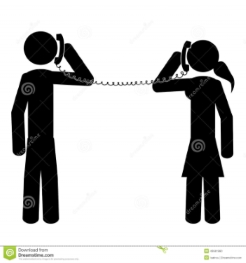Verb Introduction
Van is the verb for existence, similar to to be in English. Naturally, it is an irregular verb, but one of the most important as well.
Conjugation
| Pronoun | Past | Present | Future |
|---|---|---|---|
| én (I) | voltam | vagyok | leszek |
| te (you) | voltál | vagy | leszel |
| ő (3rd. person) | volt | lesz | |
| mi (we) | voltunk | vagyunk | leszünk |
| ti (you pl.) | voltatok | vagytok | lesztek |
| ők (they) | voltak | lesznek |
én, te, ő are singular, and mi, ti, ők are their respective plurals. These pronouns are generally not used, except for emphasis or describing a third person, because the subject (me, you, they, etc.) can be identified by the conjugation of the verb. This is different to English, in which a pronoun is required to identify the subject.
Hungarian does not distinguish between he or she, ő is used to describe both.
You may have noticed that the third person present tenses have been omitted, this is because they are only used for stating the existence of a thing/things, this will be elaborated upon in the next section.
Using the verb van, you can describe people.
| Magyar | English |
|---|---|
| Diák vagyok / Magas vagyok | I am a student / I am tall |
| Tanár vagy? / Ki vagy? | Are you a teacher? / Who are you? |
| Ő István / Ő énekes | He is István / He is a singer |
| Sportolók vagyunk / Hol vagyunk? | We are athletes / Where are we? |
| Ügyesek vagytok / Kik vagytok? | You (pl.) are clever / Who are you (pl.)? |
| Ők színészek / Ők híresek | They are actors / They are famous |
There are two things to notice here:
- When stating someone’s occupation, we don’t need to say a.
- When describing groups of people, plural adjectives are used. E.g. ügyes (singular) - ügyesek (plural)
Challenge!

- János vagyok, ki vagy? (Free image fetched from kisspng.com)
I’m János, who are you?
Examples of Regular Verb Conjugation
In Hungarian, verbs are described using the 3rd person singular form (he/she runs, he/she jumps), instead of the infinitive (to run, to jump). Thus, if you want to look up a verb in a dictionary for example SZTAKI then you use the 3rd person singular.
Below are some examples of regular verbs, that have the same regular conjugation but with different vowel harmony.
Front vowel conjugation
Örül - (He/she/it is happy) Front-vowel (type 1)
| Pronoun | Past | Present | Future |
|---|---|---|---|
| én | örültem | örülök | fogok örülni |
| te | örültél | örülsz | fogsz örülni |
| ő | örült | örül | fog örülni |
| mi | örültünk | örülünk | fogunk örülni |
| ti | örültetek | örültök | fogtok örülni |
| ők | örültek | örülnek | fognak örülni |
Felkel - (He/she/it rises or gets up) Front-vowel (type 2)
| Pronoun | Past | Present | Future |
|---|---|---|---|
| én | felkeltem | felkelek | fogok felkelni |
| te | felkeltél | felkelsz | fogsz felkelni |
| ő | felkelt | felkel | fog felkelni |
| mi | felkeltünk | felkelünk | fogunk felkelni |
| ti | felkeltetek | felkeltek | fogtok felkelni |
| ők | felkeltek | felkelnek | fognak felkelni |
Note that felkeltek is used for both ők past tense, and ti present tense. When talking it will be clear from context if ti or ők is being talked about.
Also, just because the future tense is structured like this in the table, doesn’t always mean that this is the most natural word order. Word order can change depending on the situation and emphasis. E.g. örülni fogoksounds better than fogok örülni.
Back vowel conjugation
Sír - (He/she/it cries) (back-vowel conjugation due to í being the only vowel)
| Pronoun | Past | Present | Future |
|---|---|---|---|
| én | sírtam | sírok | fogok sírni |
| te | sírtál | sírsz | fogsz sírni |
| ő | sírt | sír | fog sírni |
| mi | sírtunk | sírunk | fogunk sírni |
| ti | sírtatok | sírtok | fogtok sírni |
| ők | sírtak | sírnak | fognak sírni |
Keep track of the similarities and differences of the front-vowel and back-vowel conjugations. Strictly speaking there is no future tense in Hungarian, the auxiliary verb fog is conjugated and used with the verb in infinitive form alongside it.
Quicknote on time-referencing
Just like how fog is used with the infinitive verb to express the future, we can use a time-reference and the present tense to do it as well.
- Majd készülök menni Londonba. - (I will be getting ready to go to London sometime later.)
- Holnap találkozunk. - (We are meeting tomorrow.)
- Otthon megnézem. - (I’ll watch it at home.)
- Vasárnap a piacra megyek. - (I’m going to the markets on Sunday.)
- Pénteken a városba megyek. - (I’m going into the city on Friday.)
And naturally the other timestamps work with the past-tense.
- Másnap reggel, nem volt ott semmi! - (The next morning there was nothing there!)
- Mit csináltál tegnap? - (What did you do yesterday?)
- Telihold volt a minap éjszaka. - (There was a full moon the other night.)
- Nemrég otthon voltam karácsonyra. - (I was at home recently for Christmas.)
Sibilant verbs
There are other verbs that end with sibilant endings s, sz, z, zs. Because of this, some of the conjugation is assimilated into these endings.
Lesz (he/she/it becomes) front-vowel
| Pronoun | Past | Present |
|---|---|---|
| én | lettem | leszek |
| te | lettél | leszel |
| ő | lett | lesz |
| mi | lettünk | leszünk |
| ti | lettetek | lesztek |
| ők | lettek | lesznek |
Challenge!

- És hol leszel holnap? (Free image retrieved from dreamstime.com)
And where will you be tomorrow?
Lesz is the verb used as the future of van, so they are closely related.
Notice how it says leszel and not lessz, vowel harmony chips in to make it sound nicer.
Stay tuned for more verbs in upcoming sections!
Yet to Learn
Naturally because phrases have been introduced, the list will be long, but eventually these will all be covered.
-k,-twhich mark the plural and accusative- The use of
nemindicating negation - The use of
fel-which is a coverb used to add directionality. - The use of
meg-, a telicity marker
Got questions? Join our discord server!: https://discord.gg/VsqppQ6